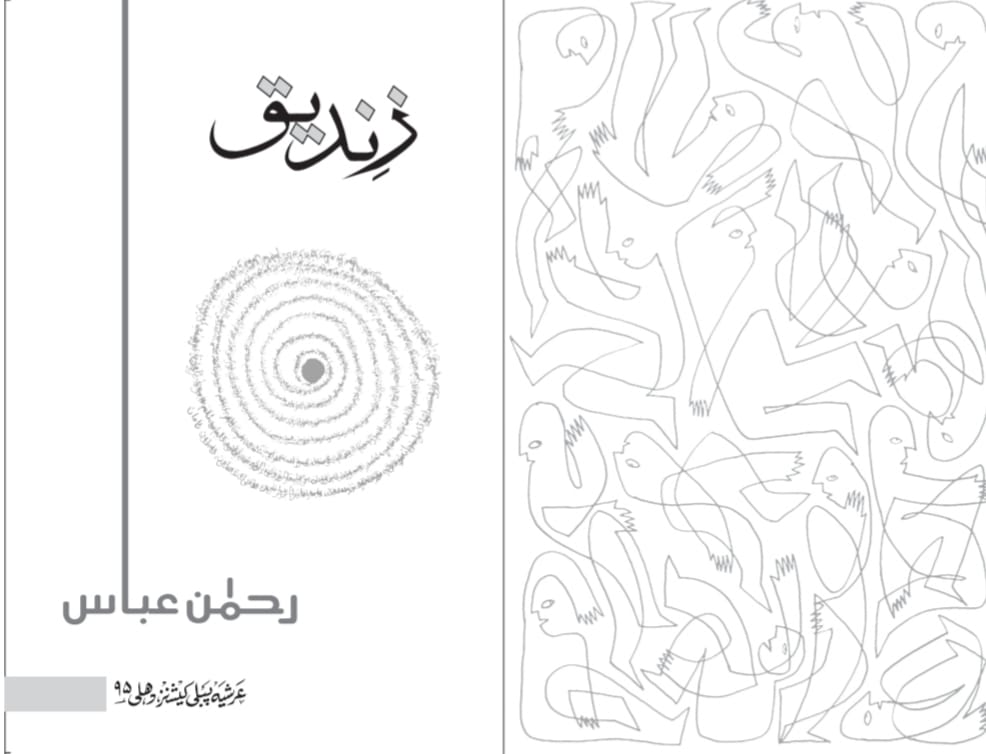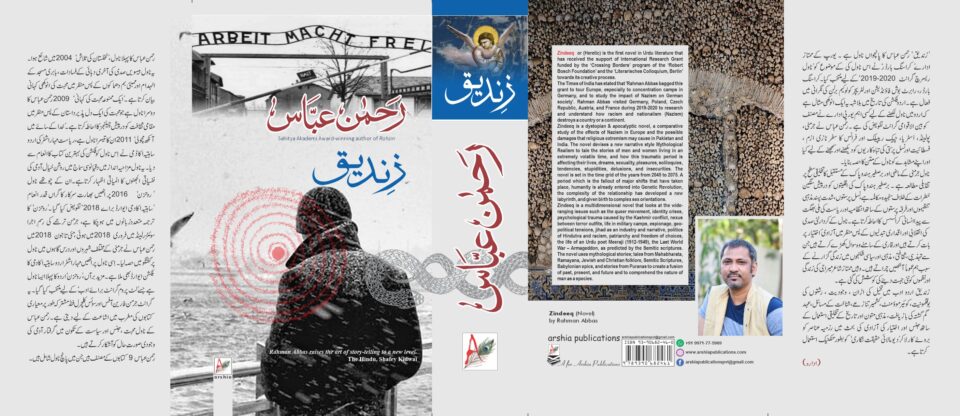Zindeeq– Rahman Abbas is one of the most important novelists of the 21st century in terms of his style, craft, themes and semantic harmony in his writing. He knows how to rise above gender, religion and psychological prejudices. It seems to me that he lives two lives. Yes, two lives – a life of his own, outside of his novels, and a life of a novelist within the text. The attention and awards to his earlier novel- ‘Rohzin’, is known to all but he has moved from that point to embark a new journey as a writer and has returned with a new novel-Zindeeq.
A great novelist must constantly strive to go deeper into knowledge, experiences, observations, he has to understand life and the universe on dynamic lines, but he must also know that the greatest source of knowledge and wisdom is travelling around the world and living every bit of the life, thoroughly. And that is what Rahman Abbas has tasted. It is true that merely speculations cannot be a substitute for experience and observation. But in order to realize the truth and its consequences a subject material of the novel requires a great degree of creativity. Eminent Urdu poet Allama Iqbal in his masterpiece, ‘Javid Nama’ says-
ہر کہ او را قوت تخلیق نیست
پیش ما جز کافر و زندیق نیست
That could be roughly translated as ‘Whoever does not have the power of creation in the sight of God is nothing but a disbeliever and a heretic. This is the importance of the creative force. Holding nine books in one hand, including five novels, holding a golden pen in the other hand, Rahman Abbas interprets the dreams of the future. He is but a smiling face and a man who knows what love is. He might be looking somewhere else sitting in front of you, at such moments you should know that he is focusing on you. And when he sits in front of you and looking into your eyes, you must believe that he has started a conversation with your third eye or your hidden being.
Zindeeq transgresses the boundaries of countries and opens innumerable closed doors of meaning. Where the tradition of listening has been stronger than reading, in such a society his narrative power is astonishing to people. What a profound novel this is can be gauged if you go deeper into the sea of its text, when a reader emerges from the sea of the text, he is in a changed state. As a reader I descended into the twisted valleys of this novel with the hope, determination and conviction that war and destruction are not the destiny of this region. The trade in the name of faith or religion, no matter how profitable it is, cannot be more profitable than peace and love. The subcontinent is a product of love, here, cultivation of war and violence cannot be profitable for long.

Sanaullah- the protagonist of the novel is a commissioned army officer, whose focus is to deconstruct & decode the conspiracy theories in the context of real and hypothetical illusions and stories. But this gives birth to questions that can the people living in India and Pakistan come out of their past? Can they rise above the mistakes of the past and think about peace, security and happiness for the millions of people who live here? The novel illuminates that both the countries are in the grip of the extremists, and questions, is there any wisdom in the trade of religious extremism? It predicts that extremism could give birth to wars and anarchy. To give space to religious extremism can only be considered as a strategy against the people of the religion. In today’s India, it is being observed that religious extremism has been an effective way to stabilize the ruling elite and its patron capitalist mafia by controlling the educated class, and at the same time intoxicating the poorest sections of society. In today’s Pakistan, efforts are being made to convert the state into a religious state, sectarian religious extremism has been intensified to keep the peace loving and educated class of the society in its own prison of problems. This game, if it has to end, it can end when we will begin to think as human beings and not just as Indians or Pakistanis.
Zindeeq begins with the most important day of Sanaullah’s life, when he passed the compulsory examination to become an officer in the army and ends with the phrase, “And the war has begun.” It points to a fear that if both the countries will remain victims of their history, unless people here come out of the ideas and thoughts spread during the British rule, and the light of Taxila is not spread the region will continue to plunge in the darkness. As long as solidarity, freedom and equality are not embraced as a common principle, the fear of war will continue to haunt and destroy minds. And that is what this novel marks on the minds of readers.
However, the text is not pessimistic, it portrays that even today- poverty, lack of education and orthodoxies are the main problems of the region, and hence religion is used to fool people in both countries. We, the people of this region have been controlled by psychopaths and to come out of it we shouldn’t wait but create a world of love, peace and selflessness because our survival is in the love not in the war.
Dr Shahid Iqbal Kamran
(Professor at Allama Iqbal Open University, Islamabad, Pakistan)
(Translated from Urdu by Sana Usman)




